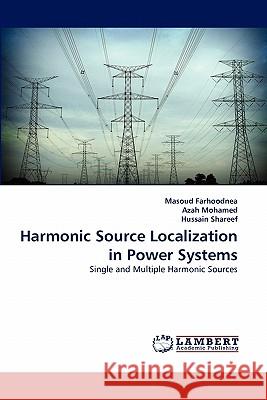Harmonic Source Localization in Power Systems » książka
Harmonic Source Localization in Power Systems
ISBN-13: 9783844326390 / Angielski / Miękka / 2011 / 152 str.
In this book, harmonic source localization methods have been developed by considering two methods. The first method considers a single point measurement strategy for locating dominant harmonic source by determining the harmonic contributions of utility and customer at a single point called as the point of common coupling. This approach is based on a Norton equivalent circuit for simplifying the system under study, and modelling the customer load with parallel RLC components using the measured harmonic voltage and current at the PCC. While, the second method considers a multiple point measurement strategy for locating multiple harmonic sources in a distribution system using independent component analysis (ICA) and mutual information theory (MI). In this method, ICA is used for reconstructing the magnitude of the injected harmonic currents caused by harmonic sources while MI is applied for determining the exact locations of harmonic sources based on the reconstructed harmonic currents.
In this book, harmonic source localization methods have been developed by considering two methods. The first method considers a single point measurement strategy for locating dominant harmonic source by determining the harmonic contributions of utility and customer at a single point called as the point of common coupling. This approach is based on a Norton equivalent circuit for simplifying the system under study, and modelling the customer load with parallel RLC components using the measured harmonic voltage and current at the PCC. While, the second method considers a multiple point measurement strategy for locating multiple harmonic sources in a distribution system using independent component analysis (ICA) and mutual information theory (MI). In this method, ICA is used for reconstructing the magnitude of the injected harmonic currents caused by harmonic sources while MI is applied for determining the exact locations of harmonic sources based on the reconstructed harmonic currents.











